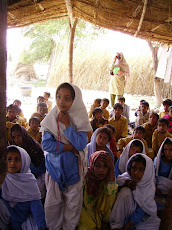Soroptimist International New York Representative to the UN, Yoko Komori Olson, attended a DPI briefing on the climate change debate post Cancun.
"After the Copenhagen Climate Conference in 2009 and the Cancun conference in 2010, the UN has made no new decisions regarding the stance towards climate change. The climate continues to rise above normal temperature.
According to Mr. Daniel Shepard, who is currently the Focal point for Climate Change and sustainable Development in the Strategic Communication Division of the UN DPI, the Cancun conference could not reach a scientific result agreement. The “Green Climate Fund” (Climate Change Financing, has set a goal of raising $100 billion annually by 2020 to help developing countries, but surprisingly, no decisions have been made on how use this money.
Under the Kyoto Protocol, binding targets were set for 37 industrialised countries and the European community for reducing greenhouse gas (GHG) emissions. This expires in 2012.
Developed and developing countries must work to ensure that the Earth temperature does not increased by more than 2 degrees Celsius. Which countries have responsibility for stopping Climate Change? According to Ms.Kate Horner, a policy analyst at Friends of the Earth, the responsibility lies with all countries. Unfortunately, not all countries hold the same level of importance for this issue. For instance, the priorities of developing countries usually are more focused on issues that are closer to home such as their economic development, population health, and education.
How do we move forward?
NGO’s can keep the pressure on Government and UN delegates, to reduce the gap between Developed and Developing countries.
Climate Change is important for our future generations. Negotiation and agreement between 194 countries is not easy, but it is critical to reach the goal of cleaner air, and reduced CO2 emissions. Unfortunately, many developing countries did not attend the Cancun Conference."
What is the Kyoto Protocol?
The Kyoto Protocol is a legally binding agreement under which industrialised countries will reduce their collective emissions of greenhouse gases by 5.2% compared to the year 1990 (but note that, compared to the emissions levels that would be expected by 2010 without the Protocol, this target represents a 29% cut). The goal is to lower overall emissions from six greenhouse gases - carbon dioxide, methane, nitrous oxide, sulfur hexafluoride, HFCs, and PFCs - calculated as an average over the five-year period of 2008-12. National targets range from 8% reductions for the European Union and some others to 7% for the US, 6% for Japan, 0% for Russia, and permitted increases of 8% for Australia and 10% for Iceland.
Monday, January 31, 2011
Subscribe to:
Post Comments (Atom)







No comments:
Post a Comment